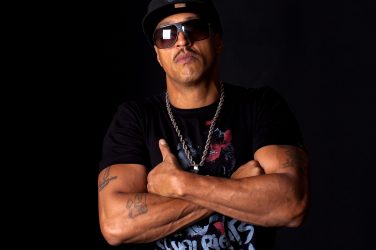It is a nail-biter in Brasília: After the impeachment of Brazilian President Dilma Rousseff last August, might her vice president and successor, Michel Temer, be forced to leave the presidential palace, too?
Will the shared election campaign the two ran in 2016 be retroactively invalidated due to accusations that it was financed with undisclosed campaign donations?
That is exactly the question that the seven judges of Brazil’s Superior Electoral Court (TSE) now have to answer. Their decision will present a serious test for Brazilian democracy.
For the trial, which began Tuesday, is taking place at a particularly touchy moment: The Lava Jato (Operation Car Wash) corruption investigations that have been rocking the country for the last four years have finally reached President Temer himself.
Former Brazilian President Fernando Henrique Cardoso, in a guest editorial in the Spanish daily newspaper El País, appealed to representatives to uphold the country’s constitution: “The greater the uncertainty, the more important it is to remain true to the constitution.”
Politicians, Cardoso wrote, must realize that the people could no longer accept systematic party, government and business corruption.
Brazil’s justice system has been terrifying politicians and businessmen since the 2014 election campaign. Initially, their Lava Jato investigations centered on bribes paid by major companies to representatives of the ruling Workers’ Party (PT). Since then, it has expanded to include all parties.
This rigorous elucidation by Brazil’s justice system, whose judges and prosecutors are viewed as rock stars these days, is new. The implementation of a leniency program, introduced in 2013, which has made many accused willing to cooperate with the courts in return for reduced sentences, has exposed long-running channels of corruption.
To date, a total of 82 persons have been formally charged, and 11 have been sentenced to jail. Among those forced to vacate their posts so far: Eduardo Cunha, former speaker of Brazil’s lower house of congress, the Chamber of Deputies; Marcelo Odebrecht, CEO of the Brazilian construction conglomerate Odebrecht; as well as nine ministers in the Temer administration. Investigations of ex-President Luiz Inácio Lula da Silva are ongoing.
The current investigations are also putting increased pressure on President Temer. He is accused of having consented to providing hush money payments to imprisoned Chamber of Deputies President Cunha. According to Joesley Batista, billionaire chairman of JBS, the world’s largest meat processing company, President Temer accepted US$ 4.6 million in bribes in 2014.
Temer’s Trump Card
Now, in the heat of the corruption investigation, comes the new trial at the Superior Electoral Court. “Temer is still in power because there is no consensus about who could replace him. That is his trump card,” said Brazil expert Oliver Stuenkel, a professor for international relations at the Getúlio Vargas Foundation (FGV) in São Paulo.
Stuenkel also offered a prediction: “The TSE is responsible for the political stability of the country. It is very unlikely that judges will declare Rousseff and Temer’s candidacy invalid if it would threaten Brazil’s political institutions.”
But should they do so, would Brazil descend into political chaos if faced with its second impeachment of a sitting president in 10 months?
Stuenkel believes it might: “It would be the first time since the end of the military dictatorship that a vice president had taken over and then been forced from office,” he explained. “That would be a massive stress test for the constitution.”
New Elections?
The Brazilian constitution dictates that when a president dies, resigns or is impeached, he or she must be replaced by the president of the Chamber of Deputies if there is no sitting vice president. Then new elections must be held.
If the next regularly scheduled election is less than two years away, the president must be elected by parliament. If it is more than two years away, then the new president must be elected by the people in a general election.
At first glance, it would seem that the path to crisis is clear, The next regularly scheduled election is to be held in October 2018. Thus, until then, Temer will have to remain in power or congress must appoint a replacement.
Nevertheless, following through with that process could prove to be politically infeasible. “An indirect election would be constitutionally correct, but the resulting administration would have even less legitimacy than the current Temer government does,” says Stuenkel.
“Most Brazilians want to have a direct election, but the constitution would have to be changed in order for that to happen.”
Regardless of the TSE’s verdict, which will come Friday at the earliest, but may also take months if the decision is contested, several potential presidential candidates are already warming up on the sidelines. And the campaign has already begun in earnest on social media.
One of the favorites, according to opinion polls, is former environmental minister Marina Silva, who ran for the presidency in 2010 and 2014. “The Temer administration has lost all political support. We need new elections,” she told the internet portal InfoMoney. “We have no need to fear the sovereign decision of the people.”
DW





